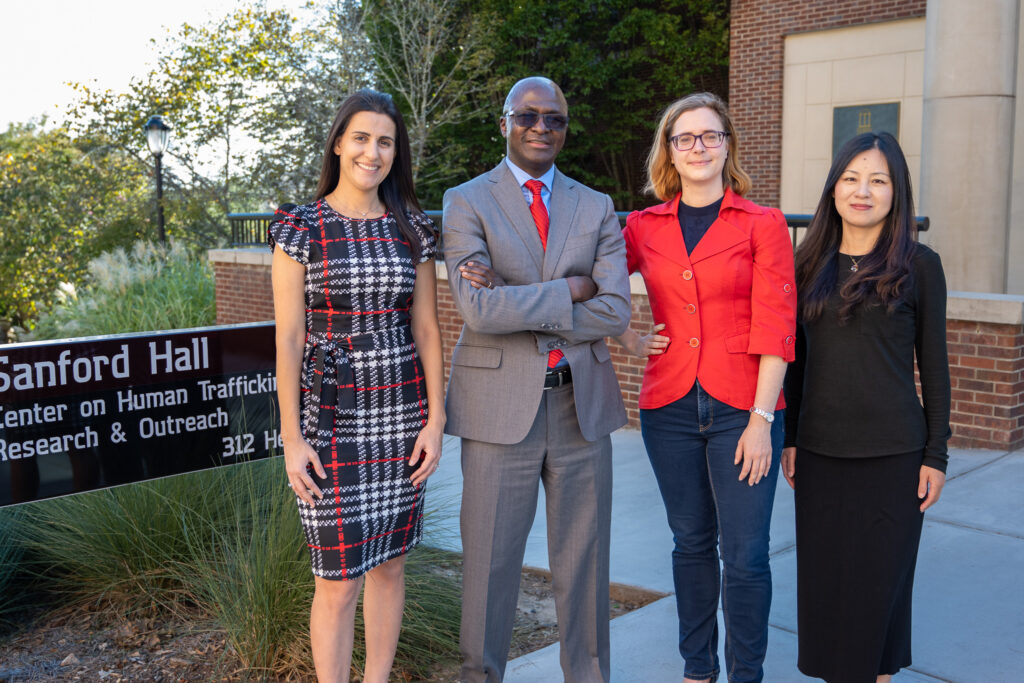The University of Georgia will receive $5.2 million from the U.S. Department of State to expand a multi-institutional effort to combat labor trafficking in Malawi and Zambia.
The new award adds to $2.2 million already committed to the UGA-based Center on Human Trafficking Research & Outreach (CenHTRO) to study the prevalence of labor trafficking in the region. Informed by research produced in the first phase, the additional funding allows CenHTRO and its partners to implement financial programs that can reduce the risks and prevalence of labor trafficking among youth and young adults.
UGA is the lead partner of an international team from the University of North Carolina at Chapel Hill, the University of Illinois Urbana-Champaign, and Washington University in St. Louis. Research partners in southern Africa include the University of Malawi and the University of Zambia.
Initial findings from CenHTRO’s research show high levels of labor trafficking in Malawi and Zambia. The study identified key risk factors.
“Unemployment and poverty push people to migrate for better opportunities. This makes them vulnerable to human trafficking situations,” said CenHTRO Director David Okech, principal investigator, professor of social work and Georgia Athletics Association Endowed Professor of Human Trafficking Implementation Research. “We believe that by increasing financial literacy and access to financial services, we can help reduce this vulnerability and curb cross-border labor trafficking.”
Lydia Aletraris, CenHTRO associate director and associate research scientist in the School of Social Work, serves as co-principal investigator.
“This project not only addresses the immediate challenges and risks of exploitation, but also fosters long-term, sustainable resilience among youth and young adults,” Aletraris said.
Other investigators include Laura Zimmermann, associate professor in the department of economics in the Terry College of Business and the School of Public and International Affairs, and associate professor Mary Ager, assistant research scientist Anna Cody, and assistant research scientist Hui Yi from the School of Social Work.
The financial programs will include helping the target population join digital savings groups that let users track spending transitions, optimize savings and access credit opportunities. Local agencies in Malawi and Zambia that work with at-risk youth, young adults and survivors of labor trafficking will implement the programs.
To study the effects of these interventions, researchers will employ a cost-effective impact evaluation method that ensures as many people as possible are exposed to the program’s benefits while providing robust data on their experiences.
“This is the first large-scale, community-based participatory research on human trafficking that includes a randomized financial capability intervention. This approach will help us improve our ability to link our interventions with the outcomes,” Okech said. “Financial capability and inclusion is my other area of research, and I am happy to apply this within the human trafficking field.”
At each stage, survivors of human trafficking play a key role. Okech said survivors will not only offer feedback on CenHTRO’s financial inclusion programs, but they will also help lead the programs in their communities and receive compensation for their time.
“Our commitment to survivor-centered approaches across our work ensures that the voices and experiences of those affected by trafficking are not only heard but play a pivotal role in shaping and leading the interventions in their communities,” Aletraris added. “By putting survivors at the forefront, we aim to empower individuals to reclaim control over their lives and contribute to the larger transformation of impacted communities.”
CenHTRO has received over $30 million to date from the U.S. Department of State Office to Monitor and Combat Trafficking in Persons to conduct research and implementation programs in 10 countries around the world.
For more information, visit cenhtro.uga.edu.
